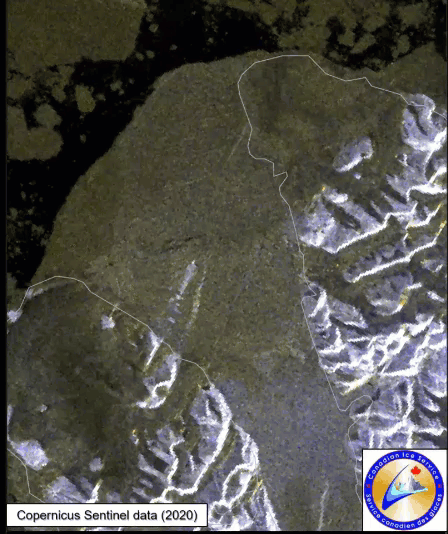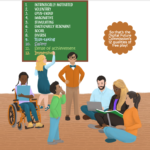First light comes later these days. I am trying to get comfortable with the dark mornings. It was a rough week. I listened to the Senate hearings live for Amy Coney Barrett. If I never hear the word “opine” again, I would be very happy. The event is hard to bear and yet necessary to bear. On the same day Judge Barrett refuses to answer questions about climate change because it is “politically controversial,” The Guardian features this interview with ice shelf scientists Adrienne White, Derek Mueller, and Luke Copland about the calving of the Milne ice shelf, the last intact ice shelf in Canada.
And also in The Guardian Environment/Climate Change section, is an article “Temperatures of deepest ocean rising quicker than previously thought” summarizing a report published 09 September 2020 in the journal Geophysical Research Letters. Here is a quote:

Even the pitch black, nearly freezing waters at the bottom of the ocean – far from where humans live and burn fossil fuels – are slowly warming, according to a study of a decade of hourly measurements.
The temperatures are rising quicker than previously thought, as recorded at stations at four different depths in the Atlantic Ocean off the coast of Uruguay. Between 2009 and 2019, the water there at points between 1,360m (4,462ft) and 4,757m deep warmed by 0.02-0.04C.
The change may seem minuscule, but it is significant.
‘If you think about how large the deep ocean is, it’s an enormous amount of heat,’ said Christopher Meinen, an oceanographer at the US National Oceanic and Atmospheric Administration (NOAA) and lead author of the study, published in the journal Geophysical Research Letters.
It’s easy to miss these profoundly important observations by dedicated scientists in this perilous election cycle we’re mired in, and that’s not even acknowledging the bandwidth keeping up with the pandemic requires of us, especially if we have children and/or elderly family members.
I make time to read the news. I choose not to watch “the news.” When possible, I like to view the source events—the Supreme Court hearings this week are a good example—as painful and infuriating as these can be. It’s not always possible to watch live, but we can almost always find the recordings archived. I prefer to be my own pundit and tap a few of my friends for their punditry to discuss what we’re reading and hearing and what we make of it. Since we each take in different media, this ongoing thread of conversation expands all of our views.
I find encouragement in reading the interview with the ice shelf scientists. When asked about how they felt to discover the breakup of the Milne ice shelf when reviewing satellite photos, Derek Mueller describes shock and sadness as his first reaction. But when asked about their plans going forward (their research station was lost in the calving event), they show the unflagging commitment and perseverance we all need today. Mueller responds, “The ice shelf is still half there. Our key study site on the ice shelf was lost, but we can find another study area potentially.”
That’s the perfect segue to remind you of the Half-Earth Day event next week on Thursday October 22. It is free to attend online and you can still register. I encourage you to review the events with your family, friends, students and attend. Make sure to schedule time post-event to discuss what inspired you, what concerned you, and what you can do. Let me know if you register. If enough people email me that they’re attending, I’d be happy to schedule a post-event Zoom call for us.
Last Monday was Indigenous Peoples’ Day. Please read this article about the impacts of the climate crisis on the Inuit inhabitants of the Arctic.



